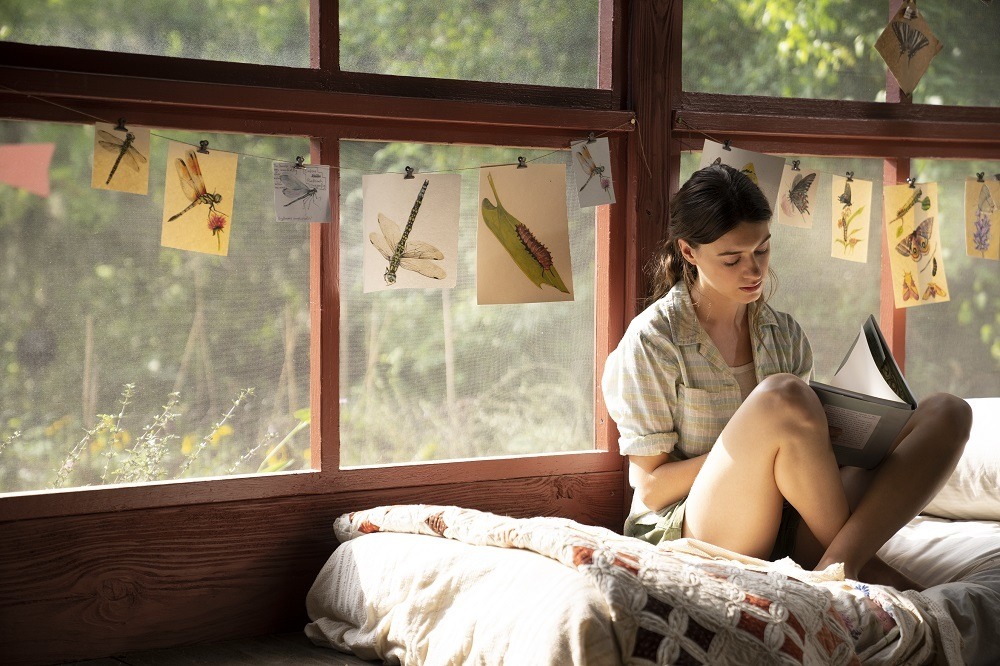Where the Crawdads Sing

Daisy Edgar-Jones stars in WHERE THE CRAWDADS SING. (Photo: Sony Pictures)
The big-screen adaptation of Where the Crawdads Sing brings to life the beauty and harshness of its setting in North Carolina’s coastal marshes, with its backdrop of lush foliage and abundant birds bathed in soft sunlight in almost every frame.
However, such evocative visual flourishes are compromised by a script that muddles the mix of romantic melodrama, murder mystery, and coming-of-age strife that drives the acclaimed if far-fetched Delia Owens novel.
It’s set primarily in the late 1960s, in a place where locales are a primary source of transportation and where the marshes cast a shadow of despair on nearby Barkley Cove and its buried secrets.
That’s where we find Kya (Daisy Edgar-Jones), an aspiring artist who has raised herself while her family has crumbled around her due to abuse and poverty. The locals have labeled her “Marsh Girl” and dismissed her as a social outcast. “Sometimes I feel so invisible I wonder if I’m here at all,” she laments.
Still, she develops affections for two young men from prominent families, Tate (Taylor John Smith) and Chase (Harris Dickinson), the latter of whom is mysteriously found dead. Kya becomes a murder suspect, and a compassionate lawyer (David Strathairn) takes up her case.
With few allies in her corner as the trial begins, Kya is concerned she will be judged on her reputation rather than her actions.
Where the Crawdads Sing is more compelling as an intimate portrait of a resilient and self-reliant outsider — a young woman’s arduous journey for acceptance and independence — than as a legal drama, the verdict of which feels secondary by the end as we’re not sufficiently invested in her guilt or innocence.
Employing a nonlinear structure, the screenplay by Lucy Alibar (Beasts of the Southern Wild) feels slick and sanitized, lacking the sort of gritty texture that could better accentuate Kya’s struggles and yield deeper resonance as she finds her voice.
Edgar-Jones (“Under the Banner of Heaven”) provides the audience with a sympathetic window into this isolated world, although most of the periphery characters lack complexity beyond their closed-minded intolerance.
As directed by Olivia Newman (First Match), much of the subtlety and suspense becomes lost amid the maze of beaches, lagoons, and forests, leaving Kya as an intriguing character in search of a better movie.
Rated PG-13, 125 minutes.